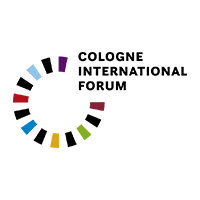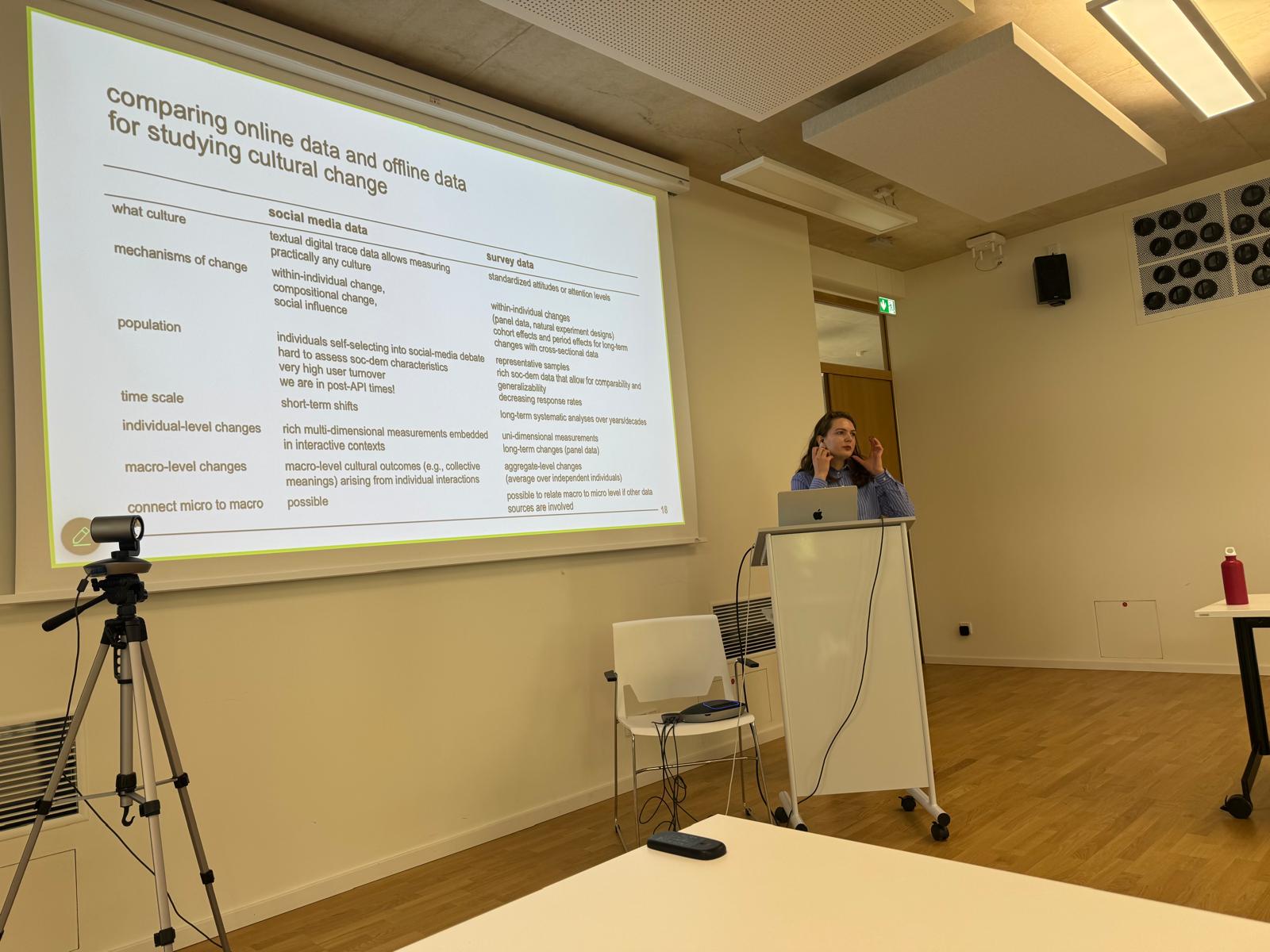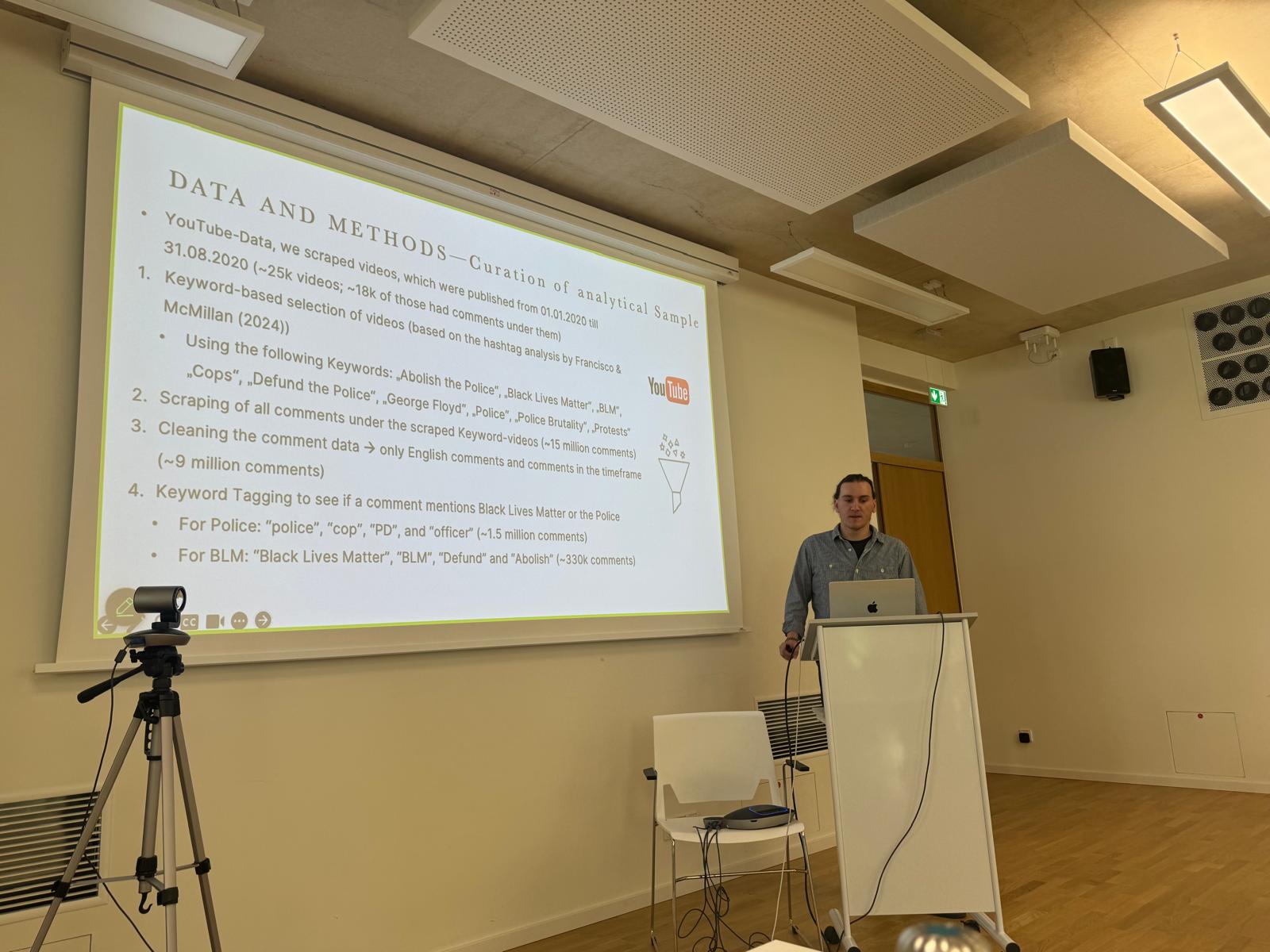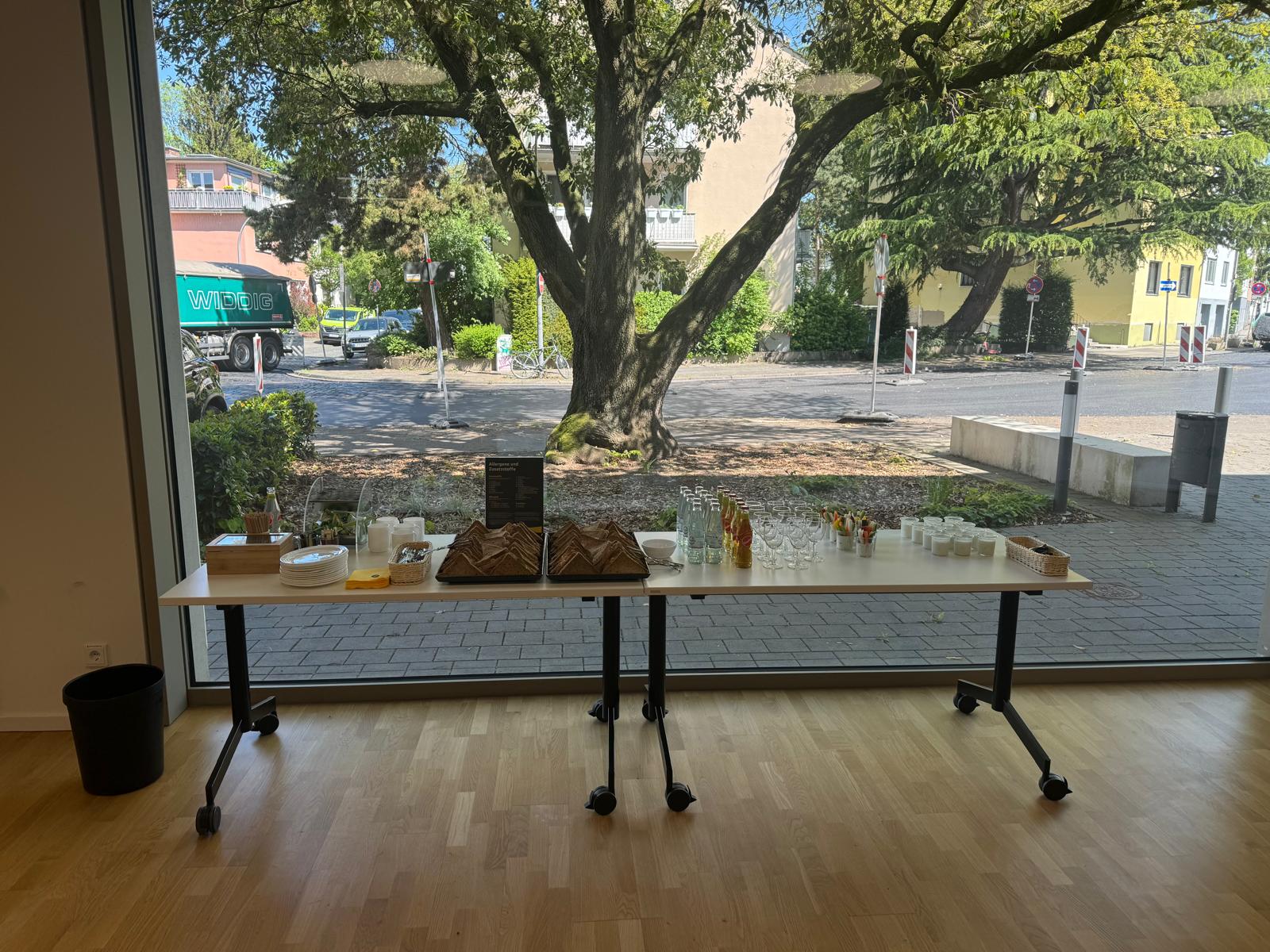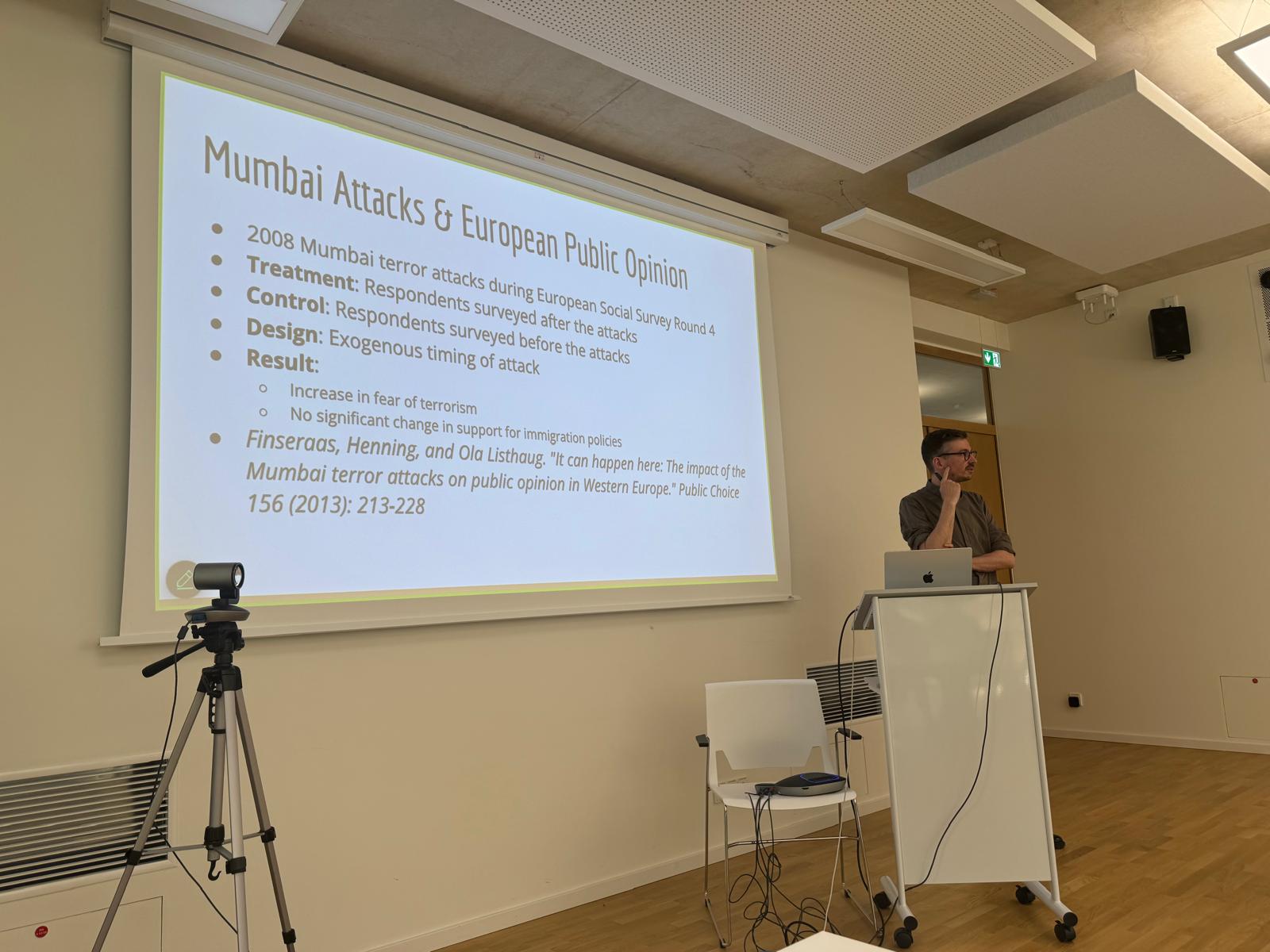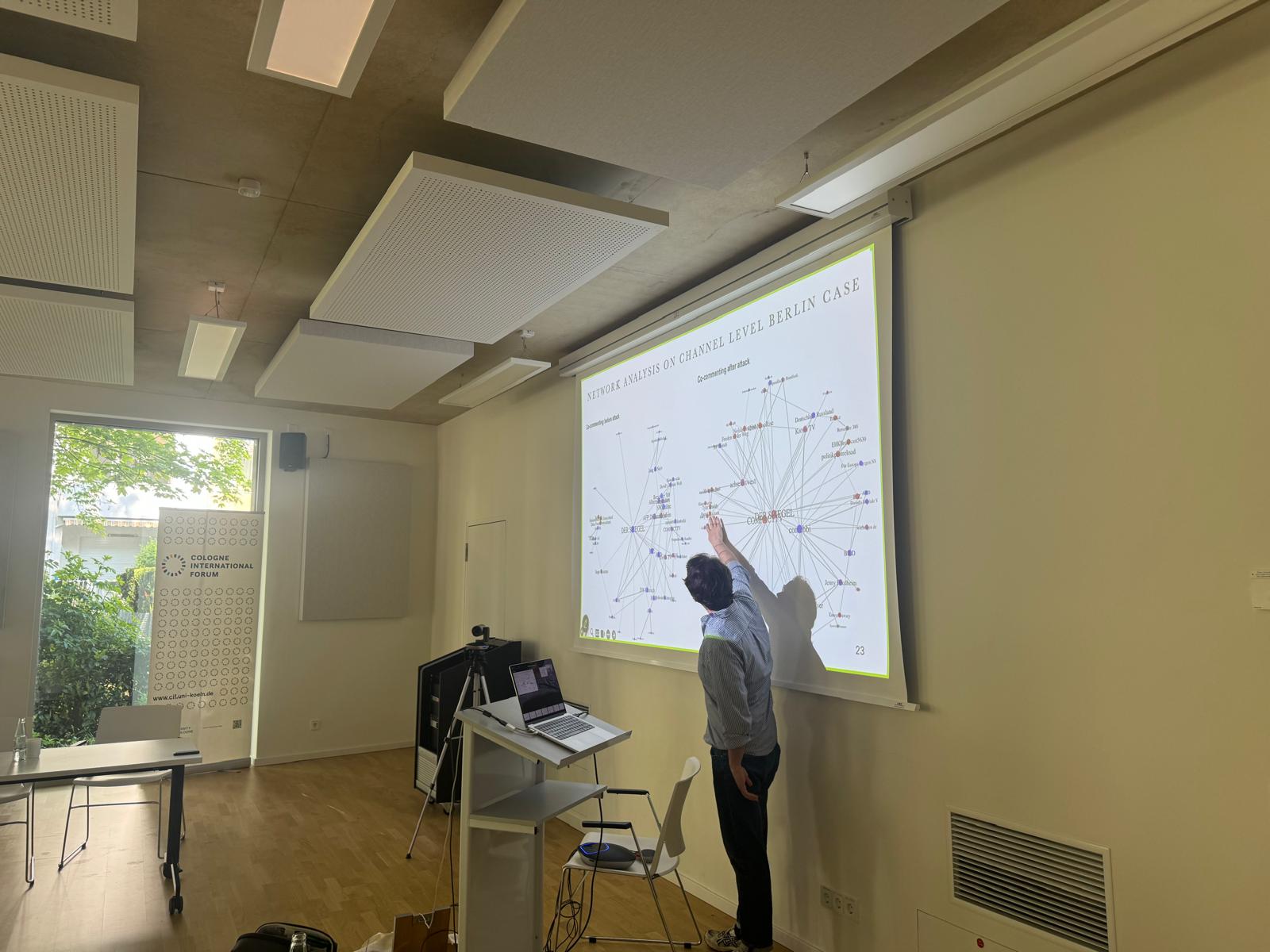Abstract
During the last decades, Europe and the Middle East were targets of a wave of Islamist terrorist attacks, sparking intense debates on immigrating in politics and the media. Understanding how societies respond to terrorism is crucial for informing policy decisions aimed at political stability and mitigating the rise of populist parties. However, existing evidence on whether citizens’ attitudes are affected by terrorist attacks remains inconclusive and suffers from various shortcomings. Our project seeks to fill these research gaps and investigate attitudes towards immigrants before and after terrorist attacks.
To do so, we analyze the effect of terrorist attacks on posts written in online media and the citizen responses to attitude questions in large-scale surveys. We trace the public discourse by analyzing posts written on YouTube and Facebook using text mining and evaluate attitudes in responses to the European Social Survey using statistical methods for identifying causal relationships. Combining these online and offline sources will provide us with unique insights into how these attacks are perceived in both the public and the private sphere.
IPODA Workshop
As part of their project, our Innovative Tandem hosted the IPODA (Immigration, Public Opinion, and Crime in the Digital Age) workshop.
This workshop explores how social scientists can integrate insights from online data sources (e.g., social media) with traditional methods such as surveys and qualitative interviews to study public opinion and political discourse concerning immigration and crime. Researchers using both types of sources to will come together to discuss and overcome methodological and conceptual divides and discuss challenges of studying public and political discourse. The hosts hope to encourage collaborations that combine insights from conventional and digital approaches. The workshop features seven in-depth invited talks and keynotes by Dr. Christian Czymara and Dr. Isabel van der Vegt. It is hosted by Christof Nägel, Ana Macanovic, Max Pickartz, and Mark Wittek.
Day 1: 28 April 2025
9:30-10:00 | Welcome coffee |
10:00-10:40 | What do terrorist attacks change? Comparing the impact of terrorist attacks on attitudes and interpretations of immigration for social media users and the general public Anastasia Menshikova (Institute for Analytical Sociology) |
10:40-11:20 | Does Immigrant Integration Foster Positive Attitudes towards Immigration? Evidence from England Rachel Kawasaki (European University Institute) |
11:20:11:40 | Coffee break |
11:40-12:20 | Studying Stability and Erosion of Trust in the Police through Natural Experiments: A Comparative Perspective Christof Nägel (University of Cologne) |
12:20-13:00 | The Impact of the George Floyd Killing on Public Sentiment Towards the Police and Black Lives Matter in YouTube Comments Maximilian Pickartz (University of Cologne) |
13:00-15:00 | Lunch break |
15:00-16:30 | Keynote by Christian Czymara (NIDI) Effects of Events on Public Opinion: From Surveys to Social Media |
18:00-20:00 | Dinner |
Day 2: 29 April 2025
9:30-10:00 | Welcome coffee |
10:00-10:40 | The Impact of Terror Attacks on Public Opinion and Online Discourse: Investigating Event-Driven Attitude Shifts and Discursive Reconfigurations with NLP and Network Analysis Mark Wittek (Central European University) and Ana Macanovic (European University Institute) |
10:40-11:20 | The case for multiple UESDs and an application to migrant deaths in the Mediterranean Sea Joris Frese (European University Institute) |
11:20-12:00 | Comparing Probability- and Nonprobability-based Recruitment for Survey and Digital Behavioral Data Collections: Establishing the New GESIS Panel.dbd Digital Behavioral Data Sample Bernd Weiß (GESIS) |
12:30-13:00 | Coffee break |
13:00-14:30 | Comparing Probability- and Nonprobability-based Recruitment for Survey and Digital Behavioral Data Collections: Establishing the New GESIS Panel.dbd Digital Behavioral Data Sample Bernd Weiß (GESIS) |
Dr. Ana Macanovic
Ana Macanovic is a postdoctoral researcher at Radboud University in Nijmegen, Netherlands. Her work explores cooperation, trust and inequality in increasingly diverse societies. She is interested in understanding how social norms develop and change, and how language used by different social groups shapes and is shaped by social inequalities. Ana studies these phenomena with the help of computational methods, including computational text analysis, network analysis, and agent-based simulations. Ana is completing her PhD at Utrecht University concerned with cooperation in extra-legal settings, and her new projects will be focusing on the ways in different social groups are discussed in online and offline contexts and the consequences thereof.
